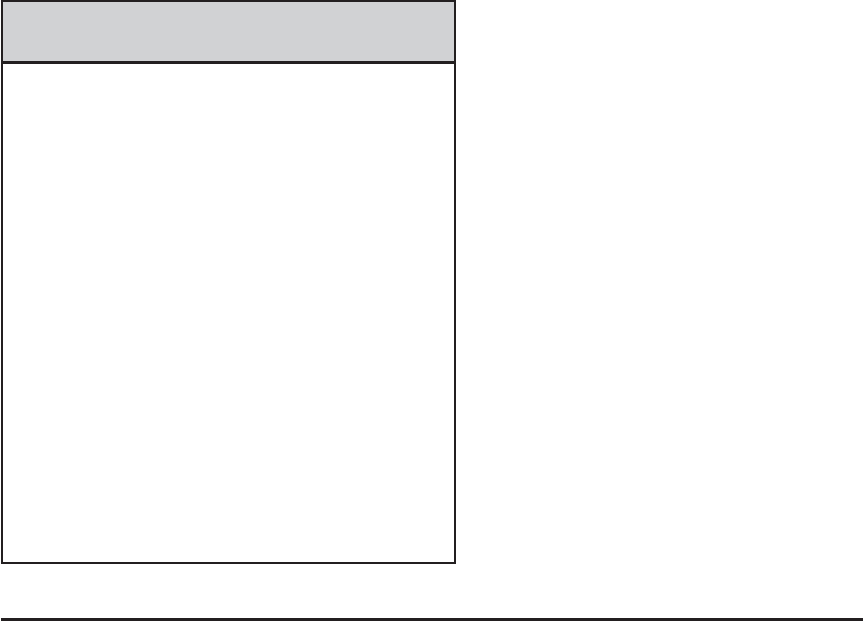
{ CAUTION:
Poorly maintained and improperly used tires
are dangerous.
• Overloading your vehicle’s tires can
cause overheating as a result of too
much flexing. You could have an air-out
and a serious accident. See Loading the
Vehicle on page 4-32.
• Underinflated tires pose the same danger
as overloaded tires. The resulting accident
could cause serious injury. Check all tires
frequently to maintain the recommended
pressure. Tire pressure should be
checked when your vehicle’s tires are
cold. See Inflation - Tire Pressure on
page 5-73.
• Overinflated tires are more likely to be cut,
punctured, or broken by a sudden
impact — such as when you hit a pothole.
Keep tires at the recommended pressure.
• Worn, old tires can cause accidents. If the
tire’s tread is badly worn, or if your
vehicle’s tires have been damaged,
replace them.
20-Inch Tires
If your vehicle has the optional 20-inch P275/55R20
size tires, they are classified as touring tires and are
designed for on road use. The low-profile, wide
tread design is not recommended for “off-road”
driving or commercial uses such as snow plowing.
See Off-Road Driving on page 4-12 and Adding a
Snow Plow or Similar Equipment on page 4-38 for
additional information.
Notice: If the vehicle has low-profile tires, they
are more susceptible to damage from road
hazards or curb impact than standard profile
tires. Tire and/or wheel assembly damage can
occur when coming into contact with road
hazards like, potholes, or sharp edged objects,
or when sliding into a curb. The vehicle
warranty does not cover this type of damage.
Keep tires set to the correct inflation pressure
and, when possible avoid contact with curbs,
potholes, and other road hazards.
5-65


















